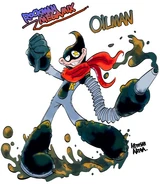
Fast Shipping, Easy Returns. A shoji screen is different from Chinese and other oriental screens in that the panels are rice paper and not woo rattan, or bamboo. The benefit is that rice paper is lighter than woo but, just as important, lets light pass through. Determine what size you would like to make your shoji screen.
Build the wooden frames for your shoji screen. Roundhill Furniture. FREE Shipping on eligible orders. Free Shipping on Orders over $35. Located in Hudson, NY.
The kumiko are the fine wooden laths of the screen , and the tsukeko are the heavier members (usually around the edge). The tsukeko are joined with mortise-and-tenon joints, with either a jaguchi joint or a more complex mitered joint. All wall mountable screens come with free brackets upon request. Typical costs for packing and shipping screens vary from $150-$2to Sydney, $175-$2to ACT, $190-$2to Melbourne, $200-$2to Adelaide and $220-$2to Perth. Turn the screen so the back is facing you.

The back is the side with one continues piece of paper across it. Run a utility knife loosely around the square grid that contains the tear to score the paper. With its traditional windowpane design and variety of options, the.
Oriental Furniture Desktop Window Pane 26. Measuring only feet tall, this screen is ideal. Shoji screens have. Friday through Monday 11-5pm Tuesday through Thursday by appt. All our screens are folding screens which allows easy placement and storage.
As an alternative we also offer canvas screens. Japanese folding screens are for the connoisseur. These are double-sided screens which can be used as room screen dividers, and privacy screens. Get decor fast with Target Drive Up, Pick Up, or Same Day Delivery. Huge Selection of Shoji Screen s. Where light transmission is not neede the similar but opaque fusuma is used.
Dividers, Shoji Screens,. Shoji usually slide, but may occasionally be hung or hinge especially in more rustic styles. Shoji are very lightweight, so they are easily slid aside, or taken off their tracks and stored in a closet, opening the room to other rooms or the outside. Folding screens called Byōbu are made from several connected panels, featuring decorative painting and calligraphy.
They can be used to separate interior areas and enclose private spaces. All of our screens are handcrafted and hand-made by our master of screen studio in Kyoto. We are still making screens completely from start to finish. We have several artists who are good at painting scenery, animals, flowers and others. They can also create a new image on request of custom made screens.
All works are painted by very skillful traditional master artists in Japan one at a time. We ship worldwide directly to you from our gallery in Japan. The screens were originally used to protect rooms from drafts but were also used to divide rooms. You will be making your own mini byōbu today. What will you use it for?
Paper provides privacy, like any oriental screen , but also diffuses light throughout the room. Above: A 6-by-6-foot Wickerwork Screen with a pine frame and a mesh of willow switches will last from eight to years outdoors. Today these important works of art can be found in museums around the world and as a statement can be used in residential and corporate environments.
In Kana mode, click or press the Space key to toggle between Hiragana input and Katakana input.
No comments:
Post a Comment
Note: only a member of this blog may post a comment.